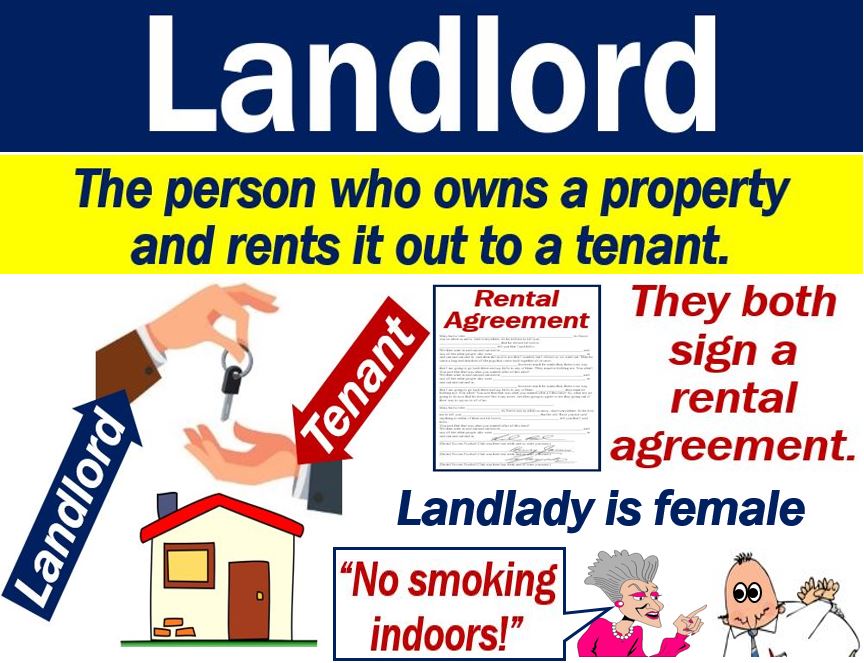A Landlord is a person who owns a building or a piece of land and rents it to another party. The other party is the tenant. We use the term Landlady when the owner of the property is a woman. In legal English, however, we can use ‘landlord’ for both male and female property owners.
The landlord is responsible for most of the maintenance and repairs to the property. The tenant lives in the place and pays the rent.
For the landlord and tenant relationship to exist, there must be a contract. We often refer to this contract as a rental agreement or lease agreement. Some people simply refer to it as ‘the lease.’ The contract says how much of the property’s maintenance and repairs each party is responsible for.
The landlord agrees and allows the tenant occupancy of the property. The owner of the property transfers limited rights and control for the temporary use of the premises.
According to the Cambridge Dictionary:
“A landlord is a person or organization that owns a building or an area of land and is paid by other people for the use of it.”
In this dictionary definition, the term ‘lease‘ means the same as ‘rent.’

Landlord – obligations
The landlord must inform the tenant of any possible defects or dangers within the building.
The rental agreement stipulates the cost of rent, time of rent, and rules regarding the property.
Sometimes, the agreement also has an inventory checklist and obligations upon contract termination.
In some countries, property rental laws are strict. The owners must ensure that their property has proper amenities and services. Additionally, landlords must comply with local health and safety standards, ensuring that their properties are safe and habitable for tenants.
Services like running water, heating, electricity, plumbing, and the communal elevator must meet a minimum standard. Otherwise, the authorities might declare the property as uninhabitable. In other words, the owner will not be allowed to rent it out to people.
The building must be in good structural order so that tenants are safe.
In the past
A long time ago, laws regarding rental properties were less strict.
Landlords did not have to maintain their properties in good condition. Many properties were filthy and lacked basic services like hot water and heating.
Many tenants lived in substandard properties. Even though nobody forced them to live in those places, they could not afford anything else.
Also, the laws favored the landlord. There were no stiff penalties or fines if a property lacked basic amenities.
Being a landlord
If you own a property, renting it out can be a profitable business. However, you must know what you are doing.
It is important that the rental agreements are thorough and that you vet your tenants carefully.
Whether being a landlord is profitable depends on where you are. In some markets, rents are ridiculously low, while in others they are higher.
Two factors determine rent levels: 1. Market forces, i.e., levels of supply and demand. 2. Legislation.
If you don’t make much profit after paying for repairs and maintenance, don’t despair. Even if you just break even, your property will increase in value over time.
Property is a good investment over the long term. Landlords must also be aware of tax responsibilities associated with rental income, as this income is typically subject to taxation in most jurisdictions.
Video – What is a Landlord?
This video presentation, from our sister channel on YouTube – Marketing Business Network, explains what a ‘Landlord’ is using simple and easy-to-understand language and examples.
